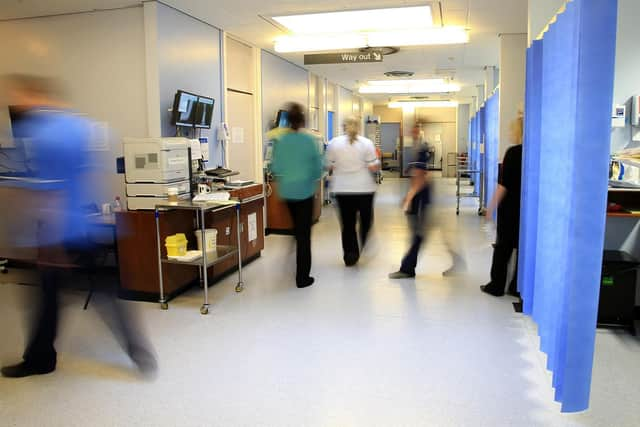New national strategy for self-care needed to help the NHS - George Howarth
In October 2019, I chaired a roundtable event on self-care, which involved healthcare professionals, pharmacists and other experts.
It was organised by the consumer healthcare association, the Proprietary Association of Great Britain, and following the event we produced a report that Under-Secretary of State for Health and Social Care is aware of.
Advertisement
Hide AdAdvertisement
Hide AdIt might be helpful if I define what I mean by self-care. Essentially, it is about the actions individuals take for themselves, on behalf of others or with others to develop, protect or maintain their health. It can be summarised as a spectrum that includes the promotion of everyday wellbeing, taking care of self-treatable conditions, and the management of long-term conditions.


It is important, however, to point out that self-care is not no care. Those who need medical support on a more traditional basis should be entitled to that type of care.
The Covid-19 pandemic has revealed the important role that self-care can play in reducing the burden on GPs and hospital A&E departments, so that those with the most serious ailments can be treated with greater urgency.
Prior to the pandemic, it is estimated that 18m GP appointments and 3.7m A&E visits were for minor ailments, including a blocked nose, dandruff and travel sickness, at an estimated cost of £1.5bn annually.
Advertisement
Hide AdAdvertisement
Hide AdA survey of frontline healthcare professionals carried out by the self-care academic research unit at Imperial College in 2021 indicated that 95 per cent of those who responded felt that self-care was important during the pandemic, compared with 55 per cent pre-pandemic.
However, a further survey carried out by Proprietary Association of Great Britain later in 2021 found that the percentage of members of the public saying that they were more likely to self-care had fallen from 69 per cent in 2020 to 55 per cent, which illustrates that the trend in that direction has reversed.
My key point is to highlight the necessity for a new national strategy for self-care. The previous such strategy, Self-care – A Real Choice, was published in 2005. Since then there have been many new developments and the case for a new strategy has been more clearly recognised.
I will use the example of those with diabetes to illustrate how self-care can work well.
Advertisement
Hide AdAdvertisement
Hide AdThe Juvenile Diabetes Research Foundation has pointed out that 79 per cent of the management of type 1 diabetes is carried out by the individual with the condition, often with the help and support of their families and carers. That makes type 1 diabetes a case study in how to successfully promote self-management.
JDRF’s 2021 report, Covid and Beyond, concluded that people with type 1 diabetes who had access to relevant technologies felt more confident in managing their diabetes in the absence of routine NHS care and support.
I will refer to the recommendations from the report following the roundtable I chaired in October 2019.
First, the Department of Health and Social Care should develop a national self-care strategy.
Advertisement
Hide AdAdvertisement
Hide AdSecondly, NHS England and NHS Improvement should explore the implementation of self-care recommendation prescriptions, to support clinicians to discuss self-care with patients and refer them towards it.
Thirdly, primary care networks should consider ways to improve self-care in local populations as part of the development of the network across the local health system.
Fourthly, NHS England and NHS Improvement should enable community pharmacists to refer people directly to other healthcare professionals. That has become even more apparent during the Covid-19 pandemic.
The fifth recommendation is that NHS England and Improvement should support moves towards community pharmacists being granted read and write access, to give them full integration and interoperability of IT systems as part of local health and care records partnerships, and promote national support for such data-sharing agreements. That would unlock the door to a hugely increased, positive role for community pharmacies.
Advertisement
Hide AdAdvertisement
Hide AdSixthly, the Government and royal colleges should include in the healthcare professional curriculum and the national curriculum self-care modules that can be delivered sustainably by schools.
Finally, NHSX should explore technologies that could be used to promote self-care and manage demand on the NHS.
Sir George is Labour MP for Knowsley. This is an edited extract of a speech in Parliament.